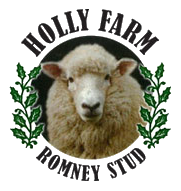Romney Stud is a farm’s foundation
David and Maureen Smith with their son Cam and his partner Susan Graham
Award-winning Holly Farm has a long association with Romney sheep, dating back to 1947.
Manawatu Farming Lifestyles: April 2022, by Denise Gunn
Bob and Joyce Smith bought the original farm just north of Marton in Rangitikei. Shortly afterwards, the couple established Holly Farm Romney Stud. This multi-generational farm has remained in the hands of the Smith family ever since.
The couple’s son David and his wife Maureen continued running the farm, expanding it when the opportunity arose and focussing a lot of their attention on the stud. They farm the 350-hectare property together with their son Cam and his partner Susan Graham.
David’s parents chose Romney due to the breed’s dual purpose. Wool was earning good returns back then.
Holly Farm currently runs 3,000 sheep, including lambs, 200 Angus breeding cows, including calves, and about 90 grazing dairy heifers. Angus was selected due to their foraging abilities, cleaning up the farm’s steeper hill country.
The Romney stud remains the primary focus, and all sheep on the farm are stud sheep.
“We run 1,000 intensively recorded stud ewes,” said Susan.
The Smith family has recently started to introduce Romneys with a very high tolerance to facial eczema into the flock.
Working with AgResearch on parasites, survival and longevity, the Smith family has created a low-input Romney suitable for New Zealand hill country. It has been a rewarding challenge.
“None of our Romneys are drenched once they are over six months old. We also have a big focus on dag scoring all of our ewes yearly.”
Each year, all stud ram hoggets are sold from mid-November.
“We also have a small South Suffolk stud to cater for clients who also want terminal sires.”
Extensive development of the land has taken place and the farm tracks constructed have improved access to most areas of the farm.
Cam said a lot of fencing had been completed during the years, which he has done himself.
“Waterways have been fenced off and planted, and erosion-prone hills have been retired. We also have two bush reserves, which are in the Queen Elizabeth II Trust. Holly Farm has won environmental awards in the past for the work that’s been done here.”
Among these awards was the AC Cameron Farm Excellence title in 1992.
The farm’s location is traditionally a summer-safe area, but the family has noticed this changing.
“It’s quite high and exposed at the top of the farm. Winters generally aren’t too bad, with the odd really cold snap.”
The farm receives an average annual rainfall of 1,100mm. David said a small amount of supplementary feed is grown each year.
“We normally do roughly 15 hectares of brassica crop for hoggets in autumn and about eight hectares of brassica crops for the winter.”
Drafting in the covered pens
Twelve years ago, with spare timber left over that had been milled on the farm, the Smith family built a cottage and set up a farm stay.
“We always had people staying over for events held here and nearby, so we thought a cottage would come in handy. We have had people from overseas and New Zealand stay here, including America, South America, Germany and Australia.
“You never know who might email or call you next for a booking.”
The family enjoys meeting a diverse range of people. They host many motorbike and horse trail rides, tramping clubs, and previously held school cross-country runs.
“We are also involved with the Tutaenui Stream Restoration Society.”
This society is creating an outdoor reserve area with walking and biking tracks around the Marton reservoirs bordering the Smith family’s land.
Holly Farm was named after the many holly trees originally on the property. The family plan to plant more shade trees and shelter belts.
Operating a sustainable farming system is the family’s long-term goal.
Source: https://www.pressreader.com/article/282067684198767 2/2


